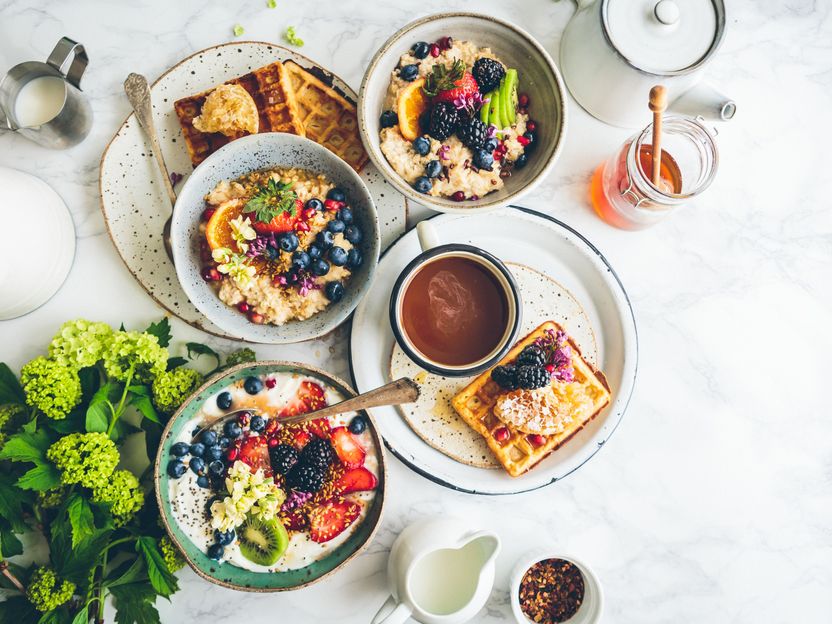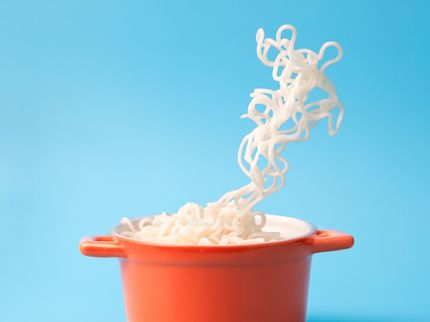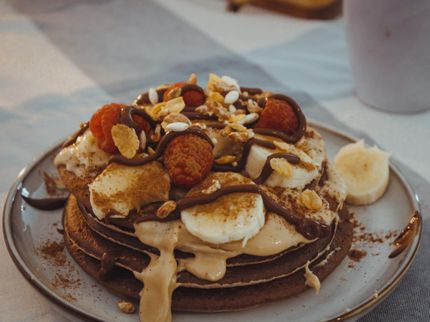3 trends in breakfast cereal to look for in 2020
The breakfast cereal space has been quick to respond to the growing interest in health and wellbeing, including an increased focus on providing ‘positive nutrition’ via less sweet formulations. Meanwhile, increased focus on portability is a must – due to the ever-increasing pace of life and changing breakfast habits.

symbol image
Photo by Brooke Lark on Unsplash
Consumers are demanding less sugar
There is an ongoing consumer demand for sugar reduction in breakfast cereals, with over three quarters of UK cereal eaters/buyers saying they would like to see the sugar content reduced in their favourite breakfast cereal. Obesity has become a serious issue worldwide, with sugar having been singled out as a key culprit. Sugar-related claims in the breakfast cereal category are largely driven by the ‘no added sugar’ claim, which has increased 10 percentage points in the last five years in Europe, according to Mintel Global New Products Database (GNPD). Meanwhile, the ‘low sugar’ claim has seen a slight bump in launch activity in the last five years, while ‘sugar-free’ launches remain niche.
Rewe Deine Wahl Triple Chocolate Crispy Muesli featured three sachets with different formulas: original recipe, 15% less sugar and 30% less sugar. Consumers were then asked to vote for their favourite recipe. The version with 30% less sugar won, chosen by 61% of voters, and is now available to buy (Germany).
Mondamin Classic Porridge can be prepared in two minutes with the addition of hot water and features a low-sugar recipe. It is a source of fibre and contains no flavour enhancers or preservatives (UK).
Cereal becomes quick and portable
In the face of changing breakfast habits and mounting competition from other breakfast options like yogurts, snack bars, breakfast biscuits, baked goods and smoothies, cereals need to boost their innovation edge. Putting convenience at the heart of brand positioning will continue to be a hot topic for cereal brands which are looking to stay relevant to ultra-busy consumers and ‘finicky’ Millennials. Greater format variety – including pots, cereal & milk duos, overnight oats, squares and ‘snackable’ minis – and category blurring efforts, eg smoothie bowls, drinkable oats, popcorn muesli or chocolate-covered treats, have opened up new growth areas for cereals. This has also helped brands reposition themselves as all-day snacks.
Monster Health Food Co. Breakfast in a Bag Multigrain Porridge is a simple and convenient way to ensure that breakfast is never missed and is perfect for taking to the office, camping and hiking (Australia).
Day Up + Wake & Joy Fruits & Millet Breakfast Porridge with Apple, Coconut, Cinnamon and Raisins is pasteurised and free from gluten, added sugar and preservatives. It can be consumed cold while on-the-go, or warm by leaving the pouch for 2-3 minutes in a cup of hot water. Made with apple juice and coconut cream, it is suitable for vegans (Poland).
Engage new audiences with flavour innovation
Brands can drive consumer engagement and sales with innovative new flavour profiles, or with varieties which resonate with local taste preferences. This can also help cereal brands reach new audiences and compete more strongly with other trending or traditional breakfast foods. In particular, experimenting with unique ingredients, distinctive flavours and sophisticated packaging designs can appeal to a more visual and share-focused generation of younger cereal eaters.
Kellogg’s India has launched a range of cornflakes which use real ingredients and draw inspiration from local and traditional tastes and flavours. The range includes Kesar, Pista and Badam, made with saffron, pistachio and almond, Rose and Badam, made with rose petals and almonds and Thandai Badam, made with a milk-based drink with spices and nuts. Indeed, Mintel research on Indian consumers reveals that 22% of adults in India say they prefer global food with an Indian twist.
Amazin’ Graze Tangerine Peanut Granola is a high-fibre, freshly-baked granola made with natural ingredients including peanut, ginger and tangerine. Besides the interesting flavour profile, the artsy packaging makes it stand out compared to traditional breakfast products (Malaysia).





























































